
With the holiday season kicking in and many people about to find themselves flush with downtime, we thought we'd try to answer a perennial question: what on Earth should I read next?
The search for the next good book is unending, so I messaged my bright colleagues here at Ars Orbiting HQ a few weeks back and requested they send over any books they've enjoyed lately.
Below you can find their responses, along with a few picks of my own.
To be clear, this list is not meant to be comprehensive. It's not a "best books of 2021" roundup; it's just a few works we liked enough to recommend to those looking to add something interesting to their to-be-read list. We kept it nice and free-form, mixing in books new and old, from sci-fi to memoirs, nonfiction to coffee-table fare. If you need something to settle in with over your holiday break—or if you're looking for a good book to give as a gift—we think you'll find some great options below.
Ars Technica may earn compensation for sales from links on this post through affiliate programs.
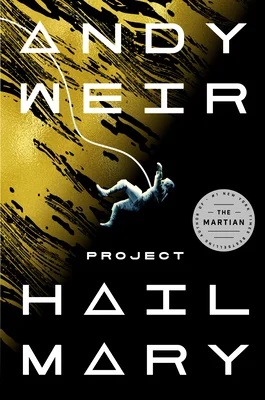 Project Hail Mary.Ballantine Books
Project Hail Mary.Ballantine Books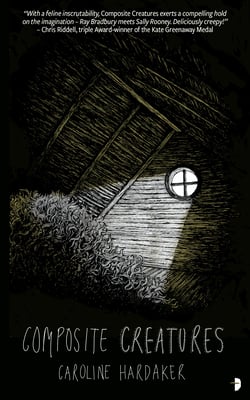 Composite Creatures.Angry Robot
Composite Creatures.Angry Robot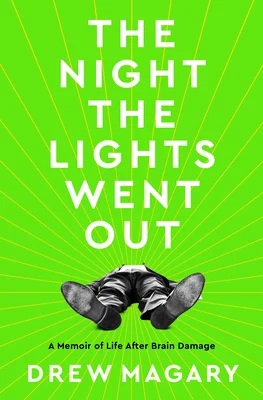 The Night The Lights Went Out.Harmony
The Night The Lights Went Out.Harmony
Project Hail Mary by Andy Weir
Buy from: Bookshop, Amazon
Imagine waking up one morning to find that you don't know where you are. Come to think of it, you don't remember who you are. Blinking into the harsh light of the room around you, you eventually piece together that you're on some sort of spaceship. Alone. No, wait—in the other bunks are two… crewmates? And—yep, they're both dead.
Such is the pickle that Ryland Grace, the star of Andy Weir's newest sci-fi novel, finds himself in. And things get worse. As Grace's memory gradually returns, he recalls that he's on some sort of mission that could have grave consequences for all of humanity. If only he could remember what he's supposed to be doing.
Saying more than that would spoil too much of the story, but anyone familiar with Weir's freshman novel The Martian (or its movie adaptation) knows what to expect from Project Hail Mary. After taking a slightly different tack with his second book, Artemis, Weir has returned to his roots, spinning up a new lone protagonist who faces problem after problem—each seemingly insurmountable until it is met with the Awesome Power of Science.
Watching as Grace thinks his way through each catastrophe to come up with (at least somewhat) plausible solutions is exhilarating, and I found myself unable to put the book down. Hugely entertaining and highly recommended.
If you've already taken the plunge yourself, you can read our spoiler-filled analysis of some of the book's themes.
—Aaron Zimmerman, Copy Chief
Composite Creatures by Caroline Hardaker
Buy from: Bookshop, Amazon
Composite Creatures takes place in a future UK where we've pushed the earth past the point of habitability. The birds have died, the soil burns through shoe bottoms, and every breath of air pushes the body closer to terminal illness. A health care corporation called Easton Grove has gained prominence as this process has taken hold, and the company promises stability, health, and fulfillment through a medical breakthrough—for those who can afford it.
This environmental dystopia is crucial to the novel, but it's still mostly the backdrop. Composite Creatures is written from the perspective of Norah, a young woman who has been selected by Easton Grove to live in a new home and be part of the company's special health care program. The corporation matches Norah up with a romantic partner, Arthur, and together the new couple are tasked with looking after a pet-like...thing, which Norah names "Nut."
The pleasure of Composite Creatures is in the information it withholds. Hardaker cooks her story at a slow boil, always giving you just enough unsettling detail about her world and characters to nudge you forward until she reaches the book's terrifying finale. What starts out as an odd tale about an unusual relationship eventually grows into a crushing portrayal of complacency, anxiety, and the emptiness of choosing comfort and self-preservation over ambition and truly living.
I realize all of that sounds depressing. Composite Creatures isn't exactly cheery. But if you don't mind the drip-feed pacing, the book's constant intrigue, layered writing, and multifaceted exploration of its themes are a treat. It is horrifying in a good way, and then even more horrifying when you realize that you might see yourself in it.
—Jeff Dunn, Senior Commerce Editor
The Night The Lights Went Out: A Memoir of Life After Brain Damage by Drew Magary
Buy from: Bookshop, Amazon
My reading tastes tend toward history, anthropology, and space opera, so it's not often that I'll pick up a memoir or anything off the autobiography shelf. But I had to make an exception for The Night the Lights Went Out: A Memoir of Life After Brain Damage, which details the aftermath of a near-fatal brain injury suffered by columnist/novelist Drew Magary at a Deadspin holiday party in New York in 2018.
Using interviews with eyewitnesses, doctors, and family members, Magary pieces together the events of that fateful night and the subsequent weeks spent in a medically induced coma in his usual, hilariously profane manner. The book then shifts to the long (and still underway) recovery, which involves learning to hear all over again via a cochlear implant, the loss and partial recovery of his sense of taste, and sadness over his inability to smell his own farts.
If you're familiar with Magary's writing, which appears at Defector and SF Gate, among other places, you'll love The Night the Lights Went Out. If not, check it out. It's rare to find writing that so creatively and poignantly commingles anger, humor, despair, and bodily functions.
—Eric Bangeman, Managing Editor
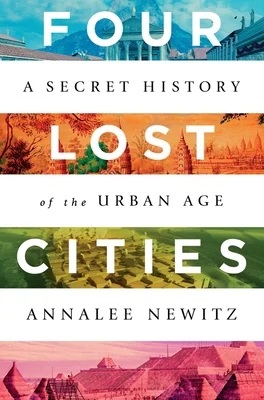 Four Lost Cities.W.W. Norton & Company
Four Lost Cities.W.W. Norton & Company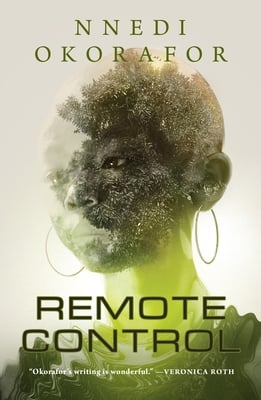 Remote Control.Tordotcom
Remote Control.Tordotcom The Game Console 2.0.No Starch Press
The Game Console 2.0.No Starch Press
Four Lost Cities: A Secret History of the Urban Age by Annalee Newitz
Buy from: Bookshop, Amazon
Brilliant writer and Ars-alumna Annalee Newitz reveals the stories behind the rise and fall of four urban centers in the near to distant past: the Neolithic city Çatalhöyük (Turkey), the Roman Pompeii (Italy), the shockingly awesome Khmer city of Angkor (Cambodia), and even Cahokia, a metropolis that existed on the Mississippi river nearly 800 years ago. Steeped in archaeology and dedicated to illuminating the lost history of multitudes, Four Lost Cities mixes wonder with analysis of how these lost cities prefigure our own modern metropolises. This is nonfiction that reads like a great documentary.
—Ken Fisher, Editor-in-Chief
Remote Control by Nnedi Okorafor
Buy from: Bookshop, Amazon
This novella tells the story of Sankofa, a young girl who gains a deadly, seemingly alien power that can wipe out whole towns and kills any technology she touches. She suffers a tragic event shortly after gaining this ability and takes to the road to find the source of her power, with only a mysterious fox by her side. The story is set in a future Ghana where talking robots direct traffic and televisions can be physically stretched across walls. But people remain people, which means they still fear death and the unknown most of all. Sankofa thus becomes something of a walking myth, striking awe and panic in equal measure in anyone she meets. She comes to be known as the "Adopted Daughter of Death."
This is a quick but poetic read, bolstered greatly by Okorafor's ability to pack so much world-building into so few words. It reads like a piece of lore or mythmaking itself, often treating Sankofa as an idea as much as a three-dimensional person, but its expressions of processing grief, becoming yourself, and using the past to find your way forward feel honest without being cloying. While it ends somewhat abruptly, the ride is fun and not necessarily incomplete. Some bits here are also loosely tied to past Okorafor novels, so if you enjoy this one, you'll have a couple of natural follow-ups to check out afterward.
—JD
The Game Console 2.0: A Photographic History from Atari to Xbox by Evan Amos
Buy from: Bookshop, Amazon
I'm a gaming enthusiast who loves a good coffee-table book, so this visual tour of gaming consoles is pretty much tailor-made for me. It covers more than 100 gaming machines in total, from the NES to the PS5 to more obscure creations like the Tapwave Zodiac and Unisonic Champion 2711. Each entry is accompanied by light but useful background info and high-quality photos, with extra shots of internal hardware and additional SKUs for the most popular consoles. All the pics look sharp, which isn't surprising given that the book's author, Evan Amos, is the guy behind many of the stock photos of game consoles you see on Wikipedia and beyond. And while this is mostly a surface-level tour of gaming history—again, it's a coffee-table book—Amos nicely ties the hardware story together by console generation. Simple and enjoyable.
—JD
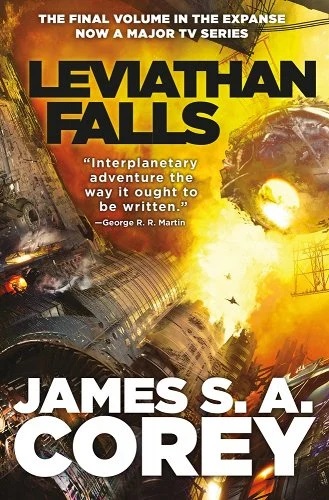 Leviathan Falls.Orbit
Leviathan Falls.Orbit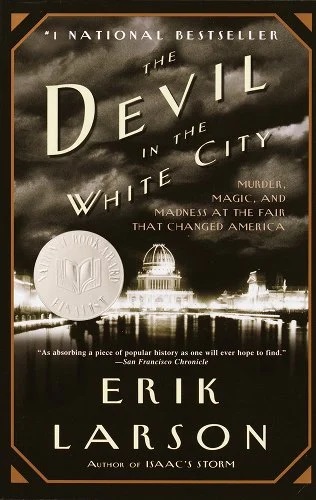 The Devil in the White City.Kendall/Hunt Publishing Co.
The Devil in the White City.Kendall/Hunt Publishing Co.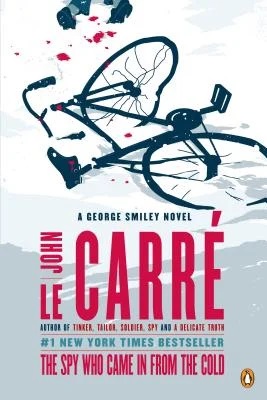 The Spy Who Came in from the Cold.Penguin Group
The Spy Who Came in from the Cold.Penguin Group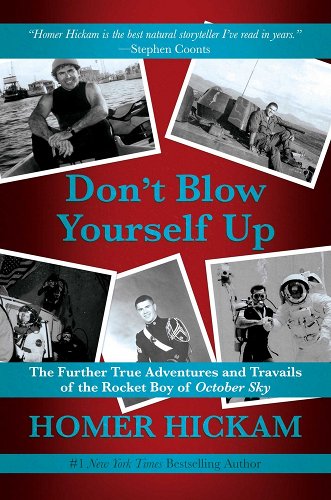 Don't Blow Yourself Up.Post Hill Press
Don't Blow Yourself Up.Post Hill Press
Leviathan Falls by James S.A. Corey
Buy from: Bookshop, Amazon
I originally wanted to recommend Brink, a graphic novel by Dan Abnett and INJ Culbard. In the book, Earth's biosphere has collapsed, and what's left of humanity is living in space habitats. The book is a chilling story that follows a security officer investigating the rise of a strange new cult.
In fact, I was actually going to split that recommendation with another comic, also from publisher 2000 AD—Megatropolis, by Kenneth Neimand and Dave Taylor. Megatropolis is an art deco/noir reimaginging of Judge Dredd and Mega City One that breathes fresh life into Old Stoney Face.
But I finally settled on the brand-new Leviathan Falls by James S.A. Corey, the latest and final installment in the nine-book Expanse saga. I won't give away anything from the plot, but as promised, a series that began as a story about humanity colonizing the solar system turned into a space opera spanning 1,300 worlds.
The book is a fitting end for Holden, Naomi, Amos, Alex, and the Rocinante, and I'm sad that there are no plans to adapt it to the screen because I really want to see a green diamond the size of Jupiter.
—Jonathan Gitlin, Automotive Editor
The Devil in the White City: Murder, Magic, and Madness at the Fair That Changed America by Erik Larson
Buy from: Bookshop, Amazon
Because I read all day for my job, I don't read as much as I'd like in my free time. However, this fall, I double-masked-up and flew on an airplane, which gave me an excuse to start reading Devil in the White City.
The book intertwines the detailed story of the architects who built the 1893 World's Fair with the story of the "architect" of death, serial killer H.H. Holmes, who used the fair to lure in his victims. Larson uses contemporaneous interviews to paint a chilling portrait of Holmes and spills a fair amount of ink describing the building Holmes built and the crematorium he created to carry out his killings. He devised the crematorium to be almost smoke-free—which reminds me a lot of the Solo Stove I'd like to buy. (Its design is probably technical enough to deserve its own Ars article.)
It's not always a page-turner, but the book is interesting to me because I'm a Chicagoan. One of the fun things that came with my family's Chicago bungalow when we bought it from a couple in their 90s was a stack of 100-year-old postcards, some of which depict the World's Fair. For all the years I've looked at these cards, they never really meant much to me. I didn't know much about the fair, let alone the term "white city." But now that I've read this book, it's been fun to look at the messages written to our house's former owners, who attended the fair so long ago. Below are two of the postcards—enjoy!
[Editor's note: And apparently there's going to be a TV miniseries adaptation from a couple of hungry up-and-comers trying to make a name for themselves.]
—Kerry Staurseth, Associate Copyeditor
The Spy Who Came in from the Cold by John Le Carré
Buy from: Bookshop, Amazon
David Cornwell, better known by his pen name John Le Carré, died last December. But his Cold War spy stories remain relevant and readable today, thanks to a combination of genuine literary talent and a fathomless cynicism about political and military maneuvering (including that of Le Carré's own country).
Le Carré's novels are short and best consumed in a couple of reading sessions, making them perfect for holiday binging. Start with the third book, The Spy Who Came in from the Cold, which tells the story of Alec Leamas, a UK intelligence officer stationed in Berlin who is handed "one last job" after his spy operation is picked apart by East German operatives. Leamas himself will be the bait to catch one of East Germany's top intelligence officials. But no one's motives here, not even Leamas', are clear. When everything is clarified in a final glare of spotlights, the ending feels both shocking and inevitable.
—Nate Anderson, Deputy Editor
Don't Blow Yourself Up: The Further True Adventures and Travails of the Rocket Boy of October Sky by Homer Hickam
Buy from: Bookshop, Amazon
Homer Hickam achieved some measure of fame for his 1998 memoir Rocket Boys, which covered growing up in a West Virginia mining town and his pursuit of amateur rocketry. The book was made into a movie, October Sky, and has been cited as an inspiration by many of the younger rocket scientists I speak with.
But Hickam's life did not end in coal country in the 1960s. He went on to a career in the US Army and worked at NASA for two decades. Earlier this year, Simon & Schuster published the story of what happened after the events in Rocket Boys in a second memoir titled Don't Blow Yourself Up. There is nothing Earth-shattering in this book, but it does deliver the fine kind of storytelling that Hickam is known for.
He has lived an interesting life, and it comes through on these pages. Along the way, we learn something about war, NASA, and colorful characters such as Tom Clancy. Readers will also come away learning from the mistakes Hickam made—and hopefully become better ourselves because of the lessons.
—Eric Berger, Senior Space Editor
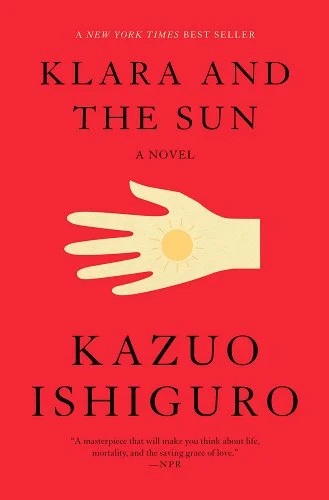 Klara and the Sun.Knopf Publishing Group
Klara and the Sun.Knopf Publishing Group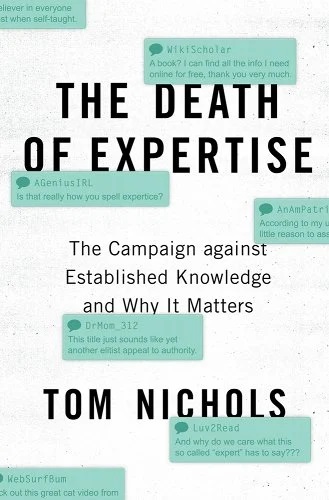 The Death of Expertise.Oxford University Press, USA
The Death of Expertise.Oxford University Press, USA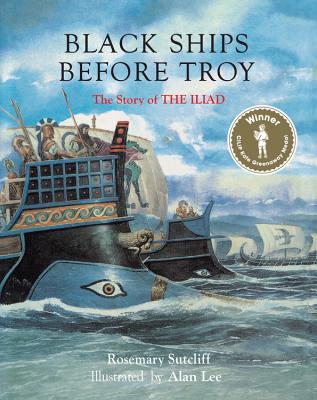 Black Ships Before Troy.Frances Lincoln Ltd
Black Ships Before Troy.Frances Lincoln Ltd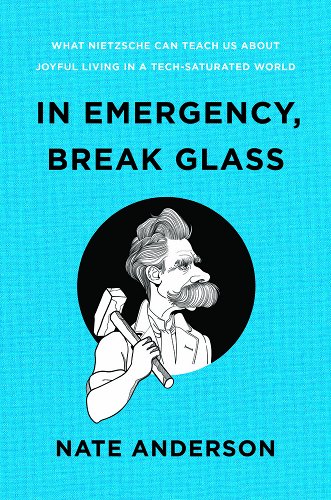 In Emergency, Break Glass: What Nietzsche Can Teach Us about Joyful Living in a Tech-Saturated World.W. W. Norton & Company
In Emergency, Break Glass: What Nietzsche Can Teach Us about Joyful Living in a Tech-Saturated World.W. W. Norton & Company
Klara and the Sun by Kazuo Ishiguro
Buy from: Bookshop, Amazon
You're probably aware of this one if you've kept up with new releases, but Klara and the Sun is the latest novel from Nobel Prize winner Kazuo Ishiguro. The book is set in a future where parents buy human-like AIs to keep their kids company and is told through the eyes of one such "Artificial Friend," who observes human behavior from her store window and hopes to become an obedient, loneliness-reducing servant to a family of her own.
I wouldn't say this is Ishiguro at his best—the book's simplistic, understated writing makes perfect sense in context but will turn off some, and it sometimes feels like the ideas here (namely, "what makes a human human?") were more richly explored in another Ishiguro novel, Never Let Me Go. But just-good Ishiguro is still a pleasure to read, and within the almost children's book-style prose are thoughtful questions about the essence of people in an increasingly modernized world. It is a sweet love story that manages to be unsettling and pertinent explicitly because of its tenderness.
—JD
The Death of Expertise: The Campaign Against Established Knowledge and Why It Matters by Tom Nichols
Buy from: Bookshop, Amazon
Written in 2017, Tom Nichols' exploration of American hostility to expertise is arguably more important in 2021 than anyone could have imagined four short years ago. Over the last two years, we've seen random people confusing Google searches with actual research, opinions with facts, and correlation with causation. Nichols' work helps explain how we got here, from the cultural changes in higher education (everyone is above average) to the media's fixation with assigning blame and making knowledge a matter of ego. The book draws heavily on work from previous thinkers in the field, and as such, it's a great introduction to a topic that apparently isn't going away anytime soon.
—KF
The Odyssey & Black Ships Before Troy: The Story of the Iliad by Rosemary Sutcliff & Alan Lee
Buy from: Bookshop, Amazon
Here's one for younger readers. If you want to introduce your kids to Homeric epics but aren't yet ready to unleash the awesomeness of Sir Ian McKellen's 13-hour Odyssey reading on them, try Rosemary Sutcliff. Known as a terrific young adult author and novelist, Sutcliff has retold both The Odyssey and The Iliad in taut prose that's long enough to get deep into the stories without ever feeling slow. The editions you want combine Sutcliff's writing with lavish pictures by well-known Tolkien illustrator Alan Lee. These illustrations bring the stories to life, though the ones in The Odyssey may be more suitable for older children, as they contain both topless women and a savage cyclopean eye-gouging. These books may currently be hard to find, though they remain available to buy through both used and UK markets. And if you don't need the illustrations, Sutcliff's retellings of The Odyssey and The Iliad are available in a more traditional format as well.
—NA
In Emergency, Break Glass: What Nietzsche Can Teach Us About Joyful Living in a Tech-Saturated World (2022) by Nate Anderson
Buy from: Bookshop, Amazon
Because we're not above a little self-promotion, we'll note that our own deputy editor, Nate Anderson, has a new book coming out in 2022. It's all about Nietzsche and technology and the Survivor song "Eye of the Tiger." It's also about building "a life of goal-oriented, creative exertion" that is "more meaningful than the 'frictionless' leisure often promised by our devices." It's not about tech tips or dialing down the blue light before bedtime; instead, it explores developing a fierce mastery of our attention, a strict information diet, and a powerful connection to the natural world so that technology can truly serve instead of rule us. Nate also assures us that it is "funny."
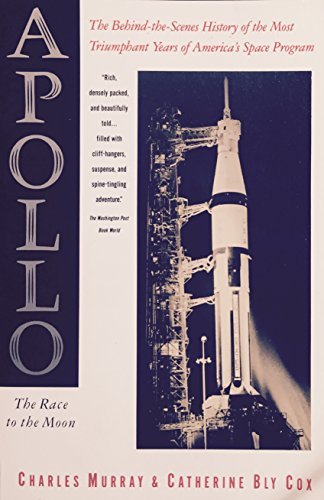 Apollo: The Race to the Moon.Touchstone Books
Apollo: The Race to the Moon.Touchstone Books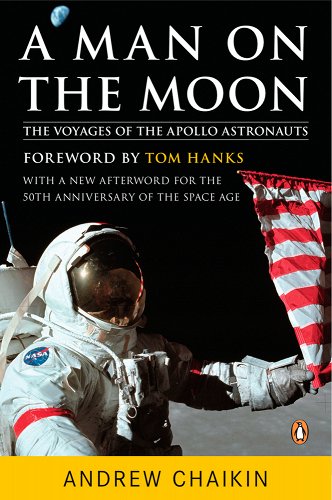 A Man on the Moon: The Voyages of the Apollo Astronauts.Penguin Group
A Man on the Moon: The Voyages of the Apollo Astronauts.Penguin Group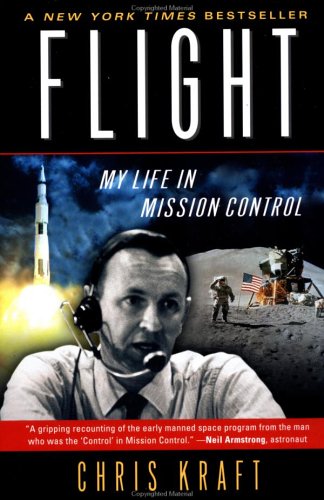 Flight: My Life in Mission Control.Plume
Flight: My Life in Mission Control.Plume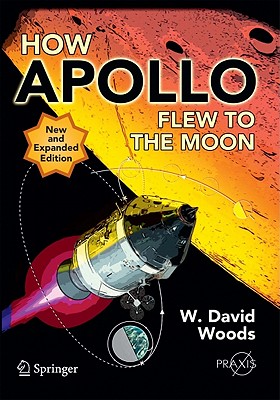 How Apollo Flew to the Moon.Springer
How Apollo Flew to the Moon.Springer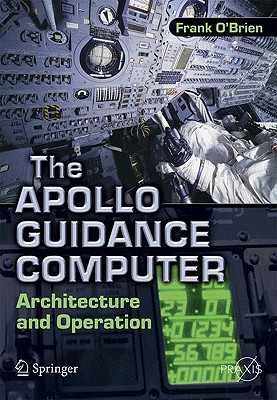 The Apollo Guidance Computer: Architecture and Operation.Praxis Publications Inc
The Apollo Guidance Computer: Architecture and Operation.Praxis Publications Inc
And now, a five-pack of good space books
[Editor's note: Ever the overachiever, Ars Senior Technology Editor Lee Hutchinson sent over five book recommendations all centered on the theme of historical space flight, complete with his own snappy intro. Not wanting to burst his bubble, we've left his whole bit intact rather than individually integrating his picks above. Love ya, Lee!]
Holiday malaise got you down? Bored with the usual lackluster Christmas routine of fruitcake and family arguments? Want to pick up a new skill to impress the heck out of your relatives—or at least finally shut up your crazy uncle who won't stop monopolizing the conversation to talk about football or whatever?
Well, kiss those Yuletide blues goodbye with Dr. Hutchinson's "How to Sound Like an Expert on Apollo and Historical Space Flight" starter pack! Yes, dear readers, these five books are more or less the same ones that caused me to fall head-over-heels in love with Project Apollo, and now you can, too. Brimming with incredible astronaut anecdotes and true facts about space, these books are on my shelf, and they should be on yours, too. Read them all, and you'll gain the ability to redirect dinner conversations to fun human spaceflight topics faster than you can say "Set SCE to AUX!"
Apollo: The Race to the Moon by Charles Murray & Catherine Bly Cox
Buy from: Amazon
If you can only get one of these books, this is the one you want. Perpetually out of print but worth putting in extra effort to find, Apollo: Race to the Moon tells the story of the space race from 1958 through the end of Apollo from the perspective of the ground engineers and flight controllers, with very little astronaut stuff—and as such, it's able to dig in to a lot of the reasons why things happened the way they did. It's probably the best and most informative Apollo book ever written—and also the only one that gets universal praise from every Apollo person I've ever interviewed, including Chris Kraft and Gene Kranz.
—Lee Hutchinson, Senior Technology Editor
A Man on the Moon: The Voyages of the Apollo Astronauts by Andrew Chaikin
Buy from: Bookshop, Amazon
As Cox & Murray was to the flight controllers, so Chaikin is to the astronauts. This is a deep, comprehensive overview of the men who strapped themselves into a fragile spacecraft and blasted off into darkness and of the things they saw and did there. It was used as the primary source for the film Apollo 13 and the HBO miniseries From the Earth to the Moon. (Fun fact: the book's bibliography indicates that it was sourced heavily from Cox & Murray, so buy both!)
—LH
Flight: My Life in Mission Control by Chris Kraft
Buy from: Amazon
This book is a little hard to find as it's also out of print, but it's worth grabbing, as it's a pull-no-punches assessment of the space industry by NASA's first Flight Director—the man who invented the concept of "Mission Control." Bonus: Kraft's shade-throwing over some of the Mercury astronauts' poor working habits and lackluster flying is just brilliant. (Gene Kranz's Failure is Not an Option autobiography is an OK substitute, but it lacks the rawness and folksy "the-author-is-sitting-down-for-a-beer-with-you" feel of Kraft's book.)
—LH
How Apollo Flew to the Moon by David Woods
Buy from: Bookshop, Amazon
You won't find a better technical breakdown of how the entire Apollo program worked. Woods goes into extreme and penetrating detail on not just how all the various pieces of the program fit together but why engineers made the decisions they did. The book delivers a play-by-play of how an Apollo mission unfolded, from the launch of the mighty Saturn V to the Command Module's splashdown, with particular emphasis on the vagaries of cislunar navigation and the problems that had to be overcome to get a spacecraft to the Moon and back. Awesome tech reading.
—LH
The Apollo Guidance Computer: Architecture and Operation by Frank O’Brien
Buy from: Bookshop, Amazon
If you enjoyed Frank's guest piece last year on how the epic Apollo 14 lunar module guidance computer hack was carried out, this book is for you. There are tons of books on the Apollo Guidance Computer, but Frank's work stands out because it includes several chapters of abstract discussion of the computer science concepts involved in constructing the AGC, and those chapters give you enough of a grounding to understand (or at least limp through) the remainder of the book's discussion of the AGC's internals. There are a few errors in the 2010 edition, but it's still the best damn AGC book I've found, and it really highlights how ludicrously advanced that little box was.
—LH
https://ift.tt/3DL9sy9
Technology
Bagikan Berita Ini
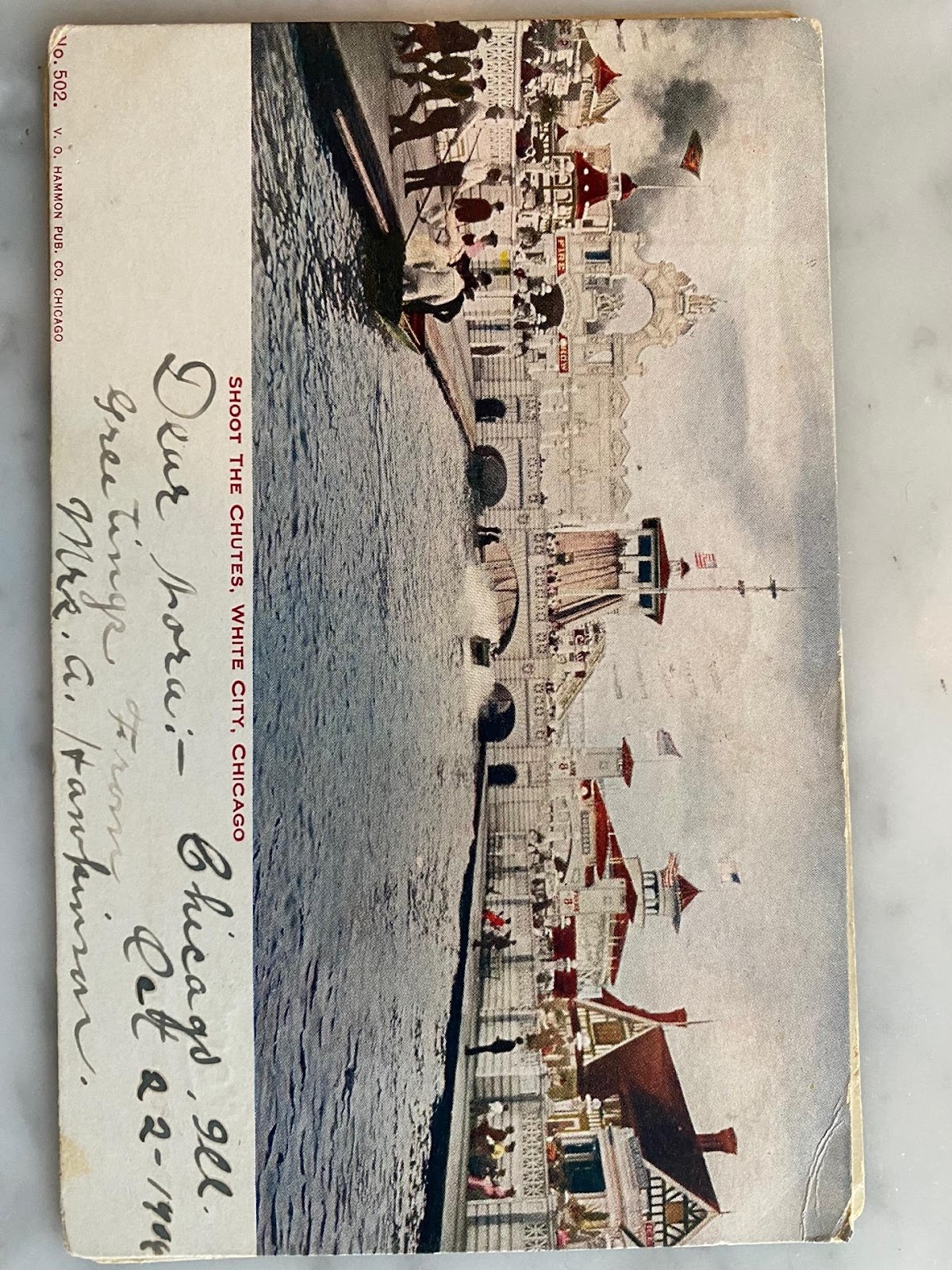
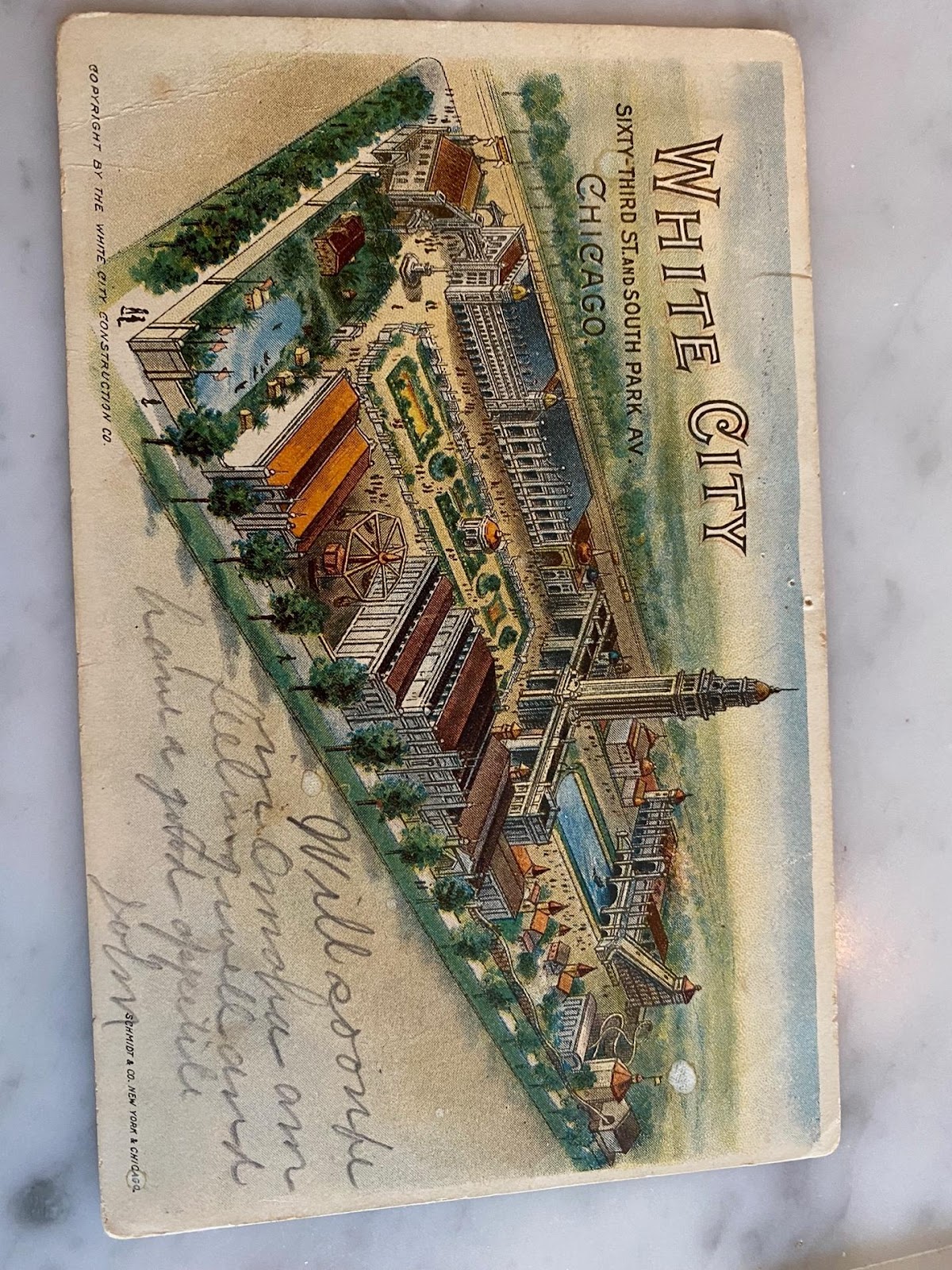














0 Response to "Holiday reading: 19 book recommendations from the Ars staff - Ars Technica"
Post a Comment